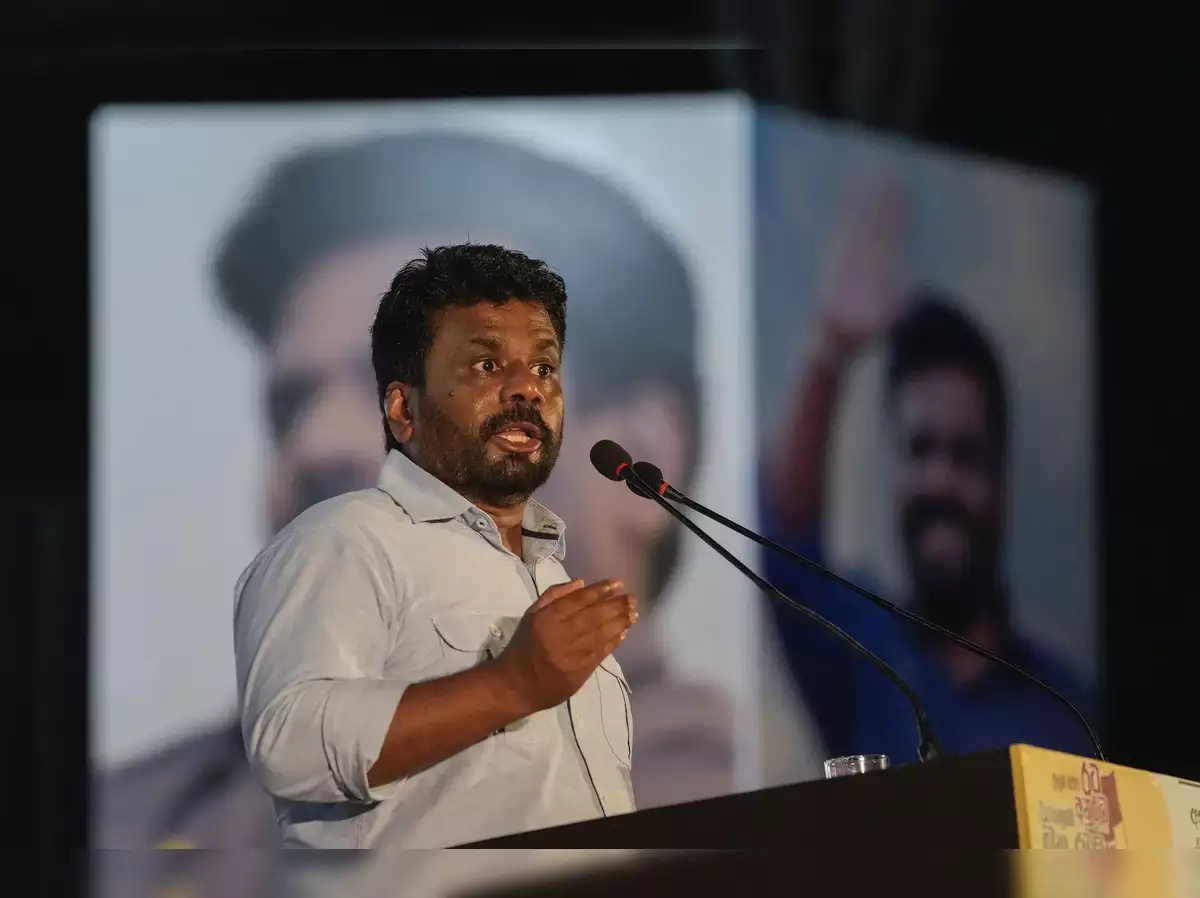Anura Kumara Dissanayake was sworn in as Sri Lanka’s new president, promising “clean” politics as the country seeks to recover from its worst economic crisis. His election marks a significant shift in leadership, reflecting a desire for change amid widespread discontent.
Dissanayake, who identifies as a left-leaning disruptor, received 5,740,179 votes after a contentious election that extended into a second round, as no candidate secured more than 50% in the first round. Opposition leader Sajith Premadasa finished second with 4,530,902 votes, while outgoing President Ranil Wickremesinghe garnered 2,299,767 votes before being excluded from the runoff.
In his inaugural speech, the 55-year-old Dissanayake emphasized the need to establish a “new clean political culture” and pledged to strengthen democracy in Sri Lanka. “Democracy doesn’t end with voting in a leader,” he stated. “My aim is to gather those with the knowledge and skills to help lift this country.”
Dissanayake, popularly known as AKD, received a Buddhist blessing during the ceremony, which included representatives from Sri Lanka’s main religions, highlighting his commitment to diversity. He declared that the unity of all ethnic groups is essential for the country’s future.
The newly elected president has committed to good governance, robust anti-corruption measures, and the development of Sri Lanka’s manufacturing, agriculture, and IT sectors. He also plans to continue the agreement with the International Monetary Fund (IMF) to help stabilize the economy while minimizing the impact of austerity measures on the poorest citizens.
Prior to Dissanayake’s swearing-in, Prime Minister Dinesh Gunawardena resigned, allowing for a potential dissolution of parliament. Dissanayake indicated he would seek to dissolve parliament shortly, stating, “There is no point continuing with a parliament that is not in line with what the people want.”
The election is notable for being the first since the mass protests that led to former President Gotabaya Rajapaksa’s ouster in 2022. Dissanayake’s anti-corruption platform resonated with voters seeking systemic change after the economic meltdown that triggered widespread unrest.
Sri Lanka’s new president faces the daunting task of reviving an economy devastated by policy missteps, rising public debt of $83 billion, and inflation that soared to 70%. These issues were compounded by the COVID-19 pandemic, which severely impacted tourism, a vital economic sector.
Political experts note that restoring the economy is the most pressing challenge. Dissanayake inherits a situation where the government is restructuring its debt and working to meet IMF conditions for a $2.9 billion lifeline secured by Wickremesinghe.
As Dissanayake embarks on his presidency, he aims to address both economic recovery and the aspirations of a populace eager for change and stability.

